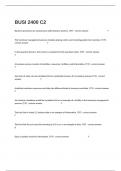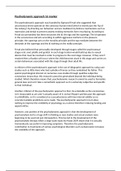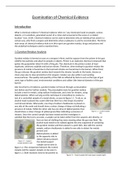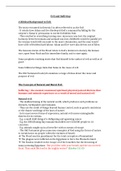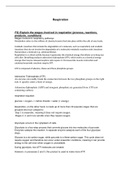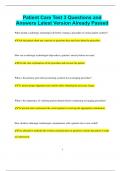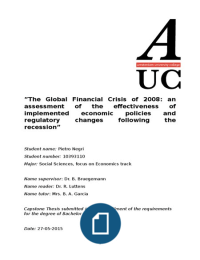3.1 Diffusion
Define diffusion as the net movement of particles from a region of their higher
concentration to a region of their lower concentration down a concentration gradient, as a
result of their random movement
State that the energy for diffusion comes from the kinetic energy of random movement of
molecules and ions
All particles move randomly at all times. This is known as Brownian motion. The energy for
diffusion comes from the kinetic energy of this random movement of molecules and ions.
Describe the importance of diffusion of gases and solutes
Diffusion helps living organisms to:
Obtain many of their requirements
Get rid of many of their waste products
Carry out gas exchange for respiration
Examples of diffusion in living organisms:
, State that substances move into and out of cells by diffusion through the cell membrane
Investigate the factors that influence diffusion, limited to surface area, temperature,
concentration gradients and distance
Surface area to volume ratio
The bigger a cell or structure is, the smaller its surface area to volume ratio is, slowing down
the rate at which substances can move across its surface.
Many cells which are adapted for diffusion have increased surface area in some way – e.g.
root hair cells in plants (which absorb water and mineral ions) and cells lining the ileum in
animals (which absorb the products of digestion).
Temperature
The higher the temperature, the faster molecules move as they have more energy.
This results in more collisions against the cell membrane and therefore a faster rate of
movement across them.
Concentration gradient
The greater the difference in concentration either side of the membrane, the faster
movement across it will occur.
This is because on the side with the higher concentration, more random collisions against
the membrane will occur.


